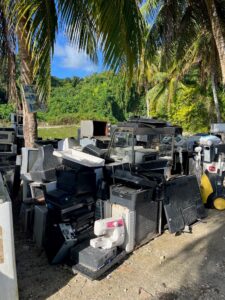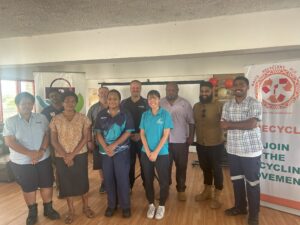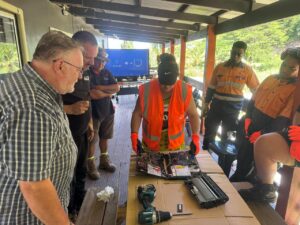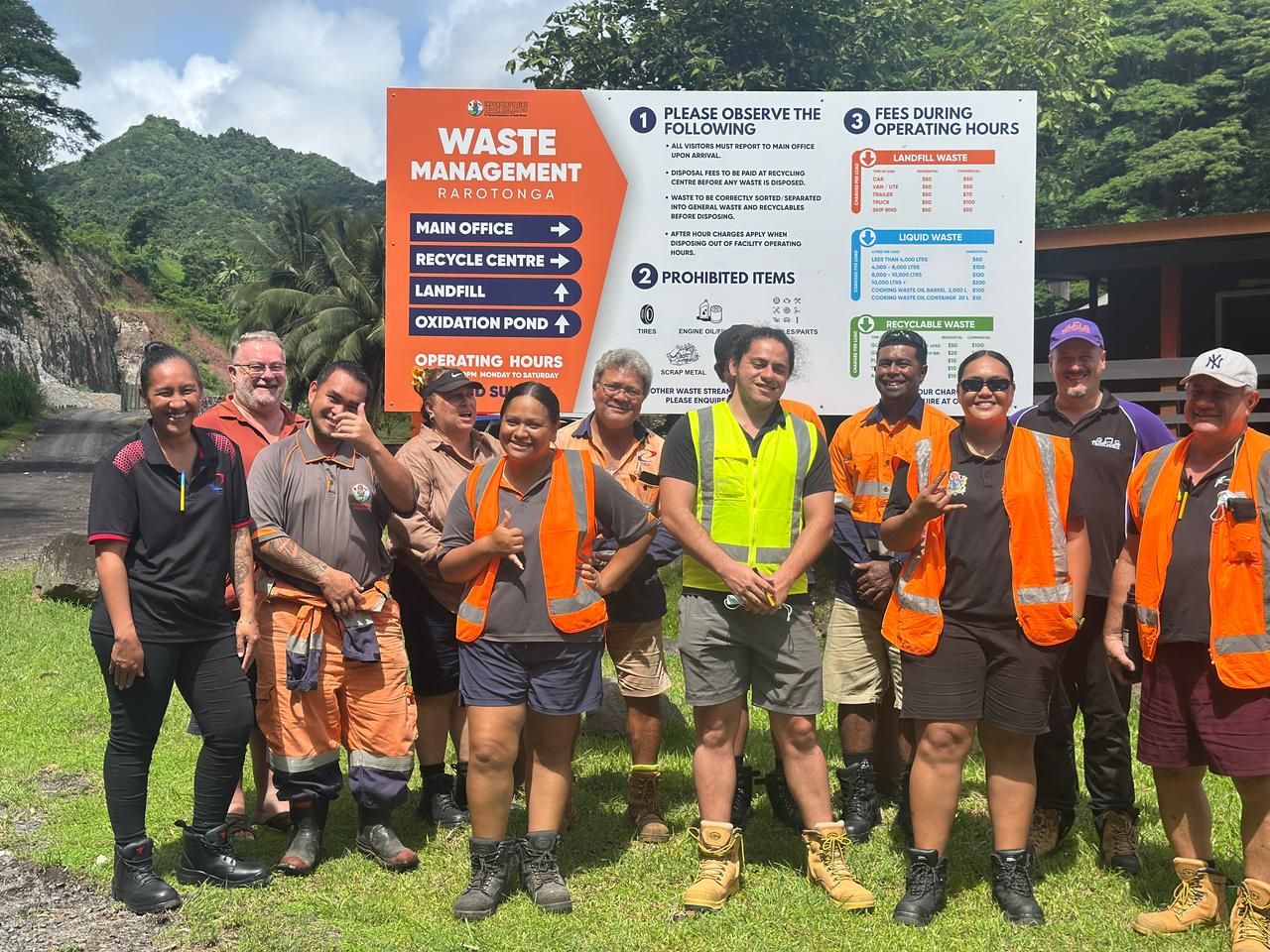Why electronic waste matters
Outdated phones, broken laptops, refrigerators and spent batteries might seem like harmless junk, but they’re a growing threat. Electrical and electronic equipment contains heavy metals, brominated flame retardants and other toxic substances. When dumped in landfills or on beaches these substances leach into soil and water, damaging ecosystems and human health.

Pacific island nations face this danger acutely: discarded electronics are stockpiled across the region, yet infrastructure to manage them is limited. Sustainable e‑waste management isn’t just about recycling; it requires collection points, storage facilities and workers trained to dismantle devices and recover valuable materials safely.
Bringing the right partners together
To tackle this regional problem, TechCollect NZ partnered with the Secretariat of the Pacific Regional Environment Programme (SPREP) under the EU‑funded PacWastePlus programme. They were joined by the Australia New Zealand Recycling Platform (ANZRP) and Recycling Group Ltd., both leaders in responsible recycling.
Together, the organisations delivered a two‑day e‑waste management programme across five Pacific nations—Rarotonga, Fiji, Kiribati, Tonga and Samoa—during March and April 2025. The curriculum blended theory and hands‑on practice and covered seven categories of e‑waste, from fridges and TVs to small electronics and batteries.

Upskilling communities to drive change
Each training session ran through modules that demystified e‑waste. Trainees learned why electronic waste is hazardous, how to use protective equipment, how to handle and dismantle different devices safely, and how to decide whether an item should be repaired, reused or recycled.

The programme also covered preparing items for life‑cycle extension and pre‑processing techniques for safe storage and shipment. Participants were assessed on their skills and received certificates of competency at the end.
This practical approach built local capability rather than imposing a one‑off fix. The objective was to transfer knowledge so communities could manage e‑waste themselves. Training materials and demonstrations showed step‑by‑step processes for packing legacy e‑waste into containers for shipment to responsible recyclers in New Zealand. With support from Recycling Group Ltd. and ANZRP, Pacific communities gained access to tools and expertise that would previously have been out of reach.
Real results: less waste, more opportunity
The programme has already delivered measurable benefits. Trained participants now know how to sort and dismantle e‑waste safely, recognise hazardous components and extract reusable parts. They can identify devices suitable for refurbishment, extending product life cycles and creating local reuse pathways. These skills reduce contamination risks, recover valuable materials and support emerging recycling economies.
The wider PacWastePlus initiative also includes public awareness campaigns, provision of equipment and upgrades to storage and collection points. Combined with TechCollect NZ’s training, this approach puts Pacific communities on a clear path to minimise e‑waste and protect their environment.
The legacy: resources for the future
With the training delivered, TechCollect NZ has finalised a comprehensive resource manual that enables Pacific trainers to run the modules independently.
Join the movement
Properly managing electronic waste safeguards fragile island environments, keeps hazardous materials out of waterways and creates circular‑economy jobs.
TechCollect NZ’s partnership with SPREP shows what’s possible when industry expertise and local communities work together.
Visit techcollect.nz to learn more, share our resources and support sustainable e‑waste management across the Pacific.

